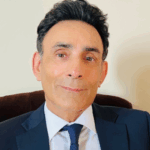What To Expect During OCD Treatment
Obsessive-compulsive disorder is something that affects the lives of many people across the United States on a daily basis. Those who struggle with it have an interruption in their ability to go about daily activities, and this makes it difficult to even leave the house sometimes. OCD treatment can make the symptoms, obsessions, and compulsions, more manageable so that someone who is struggling can go about daily functionality with minimal interruption. But what exactly is obsessive-compulsive disorder, and how is it treated? These questions are valid when wondering what makes a person go about things the certain way that they do.
What is OCD
Obsessive-compulsive disorder (OCD) is a mental health condition that can affect anyone, regardless of age, gender, and walk of life. The obsessions associated with OCD are unwanted thoughts that come without prompting, and without warning. The compulsions associated with obsessive-compulsive disorder are the behavioral portion. These are behaviors a person engages in, without being able to control it. They may fight it off and go about their day, however, these thoughts become obsessions and the person cannot continue on without giving in to the compulsions. As an example, someone with OCD could have an affinity for checking locked doors. They know the door is locked yet they continually must check to make sure. The behavior of checking the door is the compulsion, while the thoughts surrounding whether the door is locked or not is the obsession.
These obsessive thoughts and compulsive behaviors make up one disorder when displayed together. While most people experience these two things at some point in their life, when these behaviors happen for more than an hour per day, cause distress, or prevent someone from participating in important events, the obsessive-compulsive disorder can be diagnosed. These behaviors occurring occasionally do not mean someone is a little bit OCD. The condition is diagnosed when someone displays behaviors and obsessions consistently.
Signs of Untreated or Undiagnosed OCD
Untreated OCD can result in extreme distress in a person who is struggling. There are common forms in which obsessive-compulsive disorder can manifest itself. These forms include contamination, sexual, religious or moral, or surrounding violence. When these go untreated, a person can end up exhibiting behaviors they normally wouldn’t. Such as with the earlier example with the doors being locked, the obsessions and compulsions that could be associated with any of the common forms of OCD can result in behaviors someone could identify.
- Contamination: a person displaying potential obsessive-compulsive disorder surrounding contamination could wash their hands obsessively, continuously clean, have fears of body fluids or germs, or just a general fear of perceived contamination.
- Sexual: unwanted thoughts or mental images surrounding sexual content. This can include fears of acting on impulses sexually or fear of sexual assault.
- Religious or Moral: this can manifest in the obsession with offending God, it can surround thoughts of damnation or blasphemy. It can also mean someone struggles with knowing what they are doing right or wrong morally.
- Violence: fears of acting out against themselves, acting out against family or friends, or fears of violent images in one’s mind.
The symptoms associated with these and other forms in which OCD manifests are able to be treated and in turn, managed. Using therapeutic techniques to learn coping skills can make the symptoms more manageable so that they cause less distress and interruption in a person’s life. OCD treatment is essential for learning to cope with this mental health condition.
CBT and DBT
OCD treatment consists of using cognitive behavioral therapy (CBT) and dialectical behavioral therapy (DBT). Cognitive behavioral therapy is a form of talk therapy that focuses on changing thought patterns. It works to identify the causes of the thought and how it can affect a person. DBT helps those who experience emotions intensely to regulate and understand these emotions. These therapies are beneficial in helping someone with obsessive-compulsive disorder to feel the feelings associated with the feelings OCD produces. The fears and anxieties can be life-altering and learning positive ways of coping and changing these thoughts can help someone to begin being able to live life as normally as possible again.
Proper care is essential to creating healing and recovery from the impacts of obsessive-compulsive disorder. Being able to live life as normally as possible is attainable. It takes receiving OCD treatment to make it possible, and the proper treatment is necessary to ensure the best possible life ahead for someone who is struggling.
Treating OCD in Kentucky
Obsessive-compulsive disorder is a life-changing thing. It can cause upheaval and upset in the lives of those who suffer from it. Despite this, symptoms associated with OCD can be managed. This can help to return some semblance of normalcy to the lives of OCD sufferers. If you or a loved one are struggling with obsessive-compulsive disorder, there is help available. At Lexington Addiction Center, we offer help to those who suffer from this mental health condition to learn to cope and live with the symptoms of OCD. Call us today and begin living life normally again.

| Medically Reviewed By: Board-Certified Psychiatrist and Addictionologist |

| Clinically Reviewed By: Board Certified Clinical Social Worker |
Did you know that your insurance plan may cover medical detox?

Contact Us
Set yourself free from the struggles of addiction and co-occurring mental health disorders. Reach out to our treatment team in Lexington, Kentucky today.
Get Family Support Now
Supporting Families Through Recovery
We understand addiction affects the whole family. Our comprehensive family program helps rebuild trust and restore relationships.
Weekly Family Therapy Sessions
Educational Workshops
Support Groups
Communication Skills Training
Get Family Support Now

